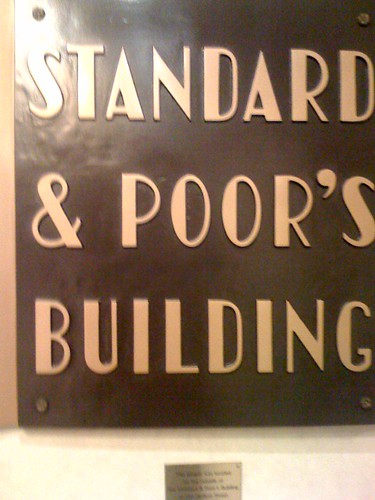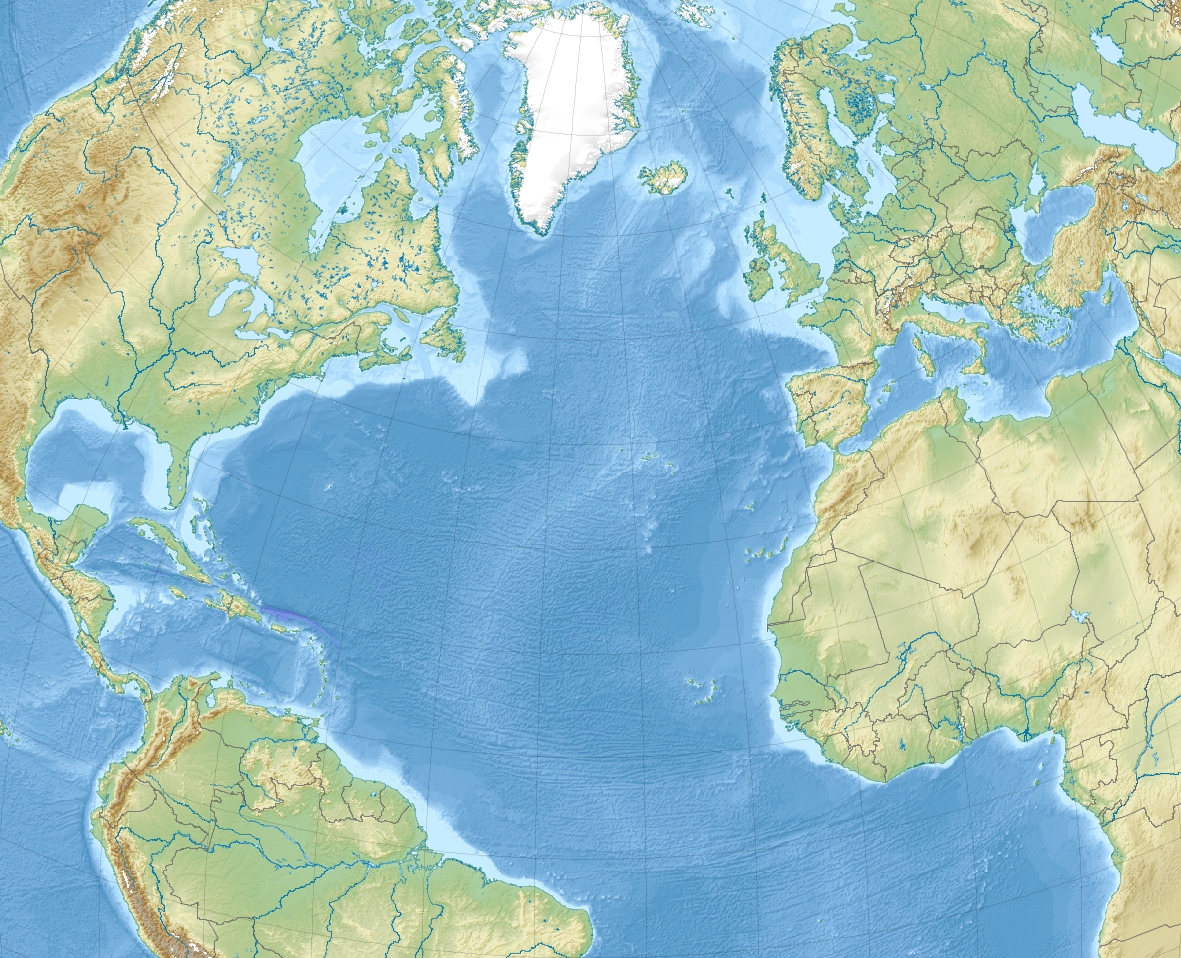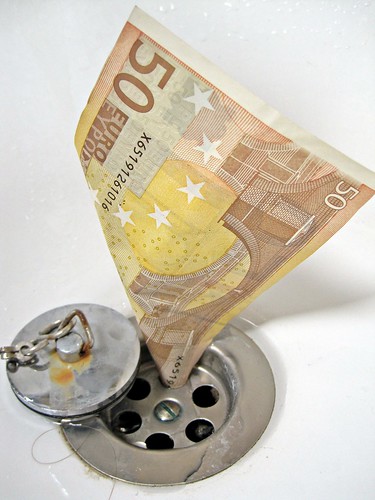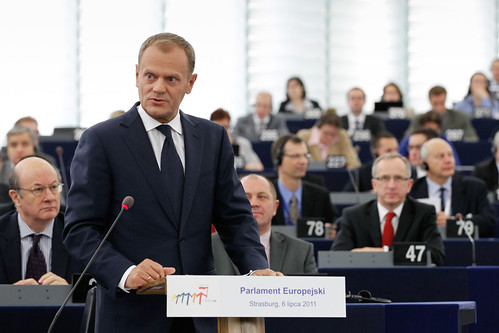Showing posts with label Italy. Show all posts
Showing posts with label Italy. Show all posts
Tuesday, 13 March 2018
A Trumpian trade war, a new German government, and an Italian election mess
Tuesday, 9 May 2017
Italy should win Eurovision 2017, but it won't
With the defeat of far-right nationalist Marine Le Pen in Sunday's French election, Europe breathed a sigh of relief. It's no time to relax just yet, but at least for the rest of the week the continent can turn to more fun diversions. And on that note - Sunday also marked the start of Eurovision week.
Of course, the Eurovision Song Contest isn't the same politics-free distraction it once was. This year's competition is in Kiev, following Ukraine's shock win last year with an unabashedly anti-Russian song. After a viciously clever trap set my Moscow, Russia has pulled out of the 2017 contest. Their absence will be keenly felt this week.
Every year, countries try to emulate the previous year's winner. 2017 has been no exception. To match Jamala's haunting winning song about the Soviet genocide and deportation of Crimean Tatars, we have a whole crop of dark, brooding songs this year about serious subjects. But none match the emotional intensity of Jamala's performance last year.
Friday, 2 December 2016
The EU may get its first far-right president. But does it matter?
Sunday may be a pivotal turning point for Europe, but not because of the presidential election in Austria. A referendum in Italy could bring the euro back to crisis point.
In May, when Austria held its first attempt at holding a presidential election, newspapers in the UK and the US were full of breathless coverage. "Austria is on the brink of electing Europe's first far-right president since WWII" they declared.
The BBC and The Guardian both used the occasion to run features about the 'rise of nationalism and populism in Europe', both of which curiously left out Britain's own UK Independence Party. 'Populism is other people' they convinced themselves. Now, after Brexit and Trump, the Anglo-American coverage is quite different.
And the coverage has returned, because the Austrian election is being re-run this Sunday, 4 December.
In May, the far-right candidate Norbert Hofer, the leader of the Freedom Party, was beaten by Alexander Van der Bellen from the Green Party by just a few thousand votes. The two were facing each other in a shock second round after the country's main center-right and center-left candidates were eliminated. It was the first time a candidate from either the Greens or Freedom Party made it to the second round.
In May, when Austria held its first attempt at holding a presidential election, newspapers in the UK and the US were full of breathless coverage. "Austria is on the brink of electing Europe's first far-right president since WWII" they declared.
The BBC and The Guardian both used the occasion to run features about the 'rise of nationalism and populism in Europe', both of which curiously left out Britain's own UK Independence Party. 'Populism is other people' they convinced themselves. Now, after Brexit and Trump, the Anglo-American coverage is quite different.
And the coverage has returned, because the Austrian election is being re-run this Sunday, 4 December.
In May, the far-right candidate Norbert Hofer, the leader of the Freedom Party, was beaten by Alexander Van der Bellen from the Green Party by just a few thousand votes. The two were facing each other in a shock second round after the country's main center-right and center-left candidates were eliminated. It was the first time a candidate from either the Greens or Freedom Party made it to the second round.
Thursday, 11 August 2016
Do the Olympics promote harmony, or suckle nationalism?
An Italian athlete has accepted her silver medal as a European, brandishing the EU flag and declaring "Europe exists!". Why is this such a daring act?
Over the past decade living here in Europe, I've noticed a curious phenomenon every four years. While my American friends back home get wildly excited about the Olympic Games, my friends in Europe seem to greet them with a collective yawn.
This pattern is being bourne out again this year. In the morning, while the Americans are sleeping, my Facebook timeline is bereft of Olympics information. Then, around 2pm, it starts. 'America won this. It lost that. Chinese people are bad at X. Australians are good at Y. Russians are cheaters. This Moldovan athlete is attractive so all Moldovans are attractive. What is Moldova again?'
I posted this observation on Facebook and asked people why they thought the difference exists. No one in Europe disagreed that Europeans are not so into the games, particularly compared to the Olympics-obsessed Americans. Funny enough, I think Americans assume the rest of the world is watching the games as closely as they are. I certainly did until I moved to Europe.
Over the past decade living here in Europe, I've noticed a curious phenomenon every four years. While my American friends back home get wildly excited about the Olympic Games, my friends in Europe seem to greet them with a collective yawn.
This pattern is being bourne out again this year. In the morning, while the Americans are sleeping, my Facebook timeline is bereft of Olympics information. Then, around 2pm, it starts. 'America won this. It lost that. Chinese people are bad at X. Australians are good at Y. Russians are cheaters. This Moldovan athlete is attractive so all Moldovans are attractive. What is Moldova again?'
I posted this observation on Facebook and asked people why they thought the difference exists. No one in Europe disagreed that Europeans are not so into the games, particularly compared to the Olympics-obsessed Americans. Funny enough, I think Americans assume the rest of the world is watching the games as closely as they are. I certainly did until I moved to Europe.
Thursday, 24 October 2013
Immigrant-on-immigrant xenophobia
 Italians were shocked yesterday to learn that a Northern Italian teenager who had recently gone to the UK to study and find work had been beaten to death over the weekend. Joele Leotta, 19, was brutally attacked by a group of young men who accused him of “stealing English jobs”, the Italian papers reported.
Italians were shocked yesterday to learn that a Northern Italian teenager who had recently gone to the UK to study and find work had been beaten to death over the weekend. Joele Leotta, 19, was brutally attacked by a group of young men who accused him of “stealing English jobs”, the Italian papers reported.The Italian papers were quick to make a connection to increasing anti-European and anti-immigrant rhetoric from the Conservative government in the UK. Some intitial reports in Italy mentioned the new campaign by the government to send vans into certain neighbourhoods telling illegal immigrants to “go home” in big letters.
The initial press coverage prompted Hannes Swoboda, the leader of the Socialist (S&D) group in the European Parliament, to issue a press release saying the murder was the result of the xenophobic climate created by the government. "The xenophobic, aggressive climate inflamed by populists such as UKIP and by the rhetoric of the Conservatives in government is now leading to murder in the streets of Britain,” said Swoboda in a statement. “Campaigns such as vans with slogans telling immigrants to 'go home' and continuous negative rhetoric against foreigners – including EU citizens – are creating an ugly mood in Britain, which has long prided itself on being an open-minded and tolerant nation.”
Monday, 21 October 2013
How small is too small?
 Yesterday the citizens of
Yesterday the citizens of As Brussels braces itself for the inevitable disappointment of a referendum on EU accession in Iceland, when or if that ever takes place, it will come as little comfort that another non-EU European country rejected EU membership yesterday.
The
Unlike an eventual
Friday, 24 May 2013
A storm in an olive cup
Yesterday, the European Commission announced a rather unusual U-turn
on a new regulation that would have banned restaurants from serving
olive oil in refillable bottles. The cave-in came after a week of media
pressure that even saw the leaders of Britain and Holland weighing in on
the subject at Wednesday's European Council.
The law was set to quietly enter into effect at the start of next year, and would have mandated that any olive oil served at a restaurant table be in labelled, pre-packaged bottles with a tamper-proof dispensing nozzle. It was approved by a recent vote of EU member states, with 15 out of 27 countries approving it.
This is probably a case of a kernel of a good intention morphing into a monster PR disaster. At heart this was supposed to be a labelling regulation – making sure that restaurant owners don't buy expensive bottles of labelled olive oil and then refill them with cheaper varieties once they are empty.
But it ended up covering all containers, even unlabelled glass bottles. This made less sense, given that a consumer can't be tricked by a misleading label if no label is present.
The law was set to quietly enter into effect at the start of next year, and would have mandated that any olive oil served at a restaurant table be in labelled, pre-packaged bottles with a tamper-proof dispensing nozzle. It was approved by a recent vote of EU member states, with 15 out of 27 countries approving it.
This is probably a case of a kernel of a good intention morphing into a monster PR disaster. At heart this was supposed to be a labelling regulation – making sure that restaurant owners don't buy expensive bottles of labelled olive oil and then refill them with cheaper varieties once they are empty.
But it ended up covering all containers, even unlabelled glass bottles. This made less sense, given that a consumer can't be tricked by a misleading label if no label is present.
Friday, 1 March 2013
A week of turmoil for Europe
Yesterday was a big news day for EU politics, with a series
of high-profile speeches in reaction to the disastrous election result in Italy on
Monday. But despite the many speeches, the message has been singular: there is
“no alternative” to austerity, and hostility toward the EU in domestic politics is exascerbating the euro crisis.
The day started with a speech by humiliated ‘technocrat’
prime minister Mario Monti at the European Commission. Having been rejected by
his home country, it is perhaps unsurprising that the former European Commissioner wanted
to come to Brussels,
where people understand him. It was Brussels
after all, at the behest of Berlin,
who installed Monti on the Italian throne after forcing out Silvio Berlusconi
at the height of the Italian crisis in 2011.
And it is no coincidence that it was the ‘Italians abroad inEurope’ voting region in which Monti received
his highest share of the vote – 30%. This compares to the 9% of the vote he
received at home – less than half the vote chare received by anti-establishment
comedian Beppe Grillo.
Location:
Brussels, Belgium
Tuesday, 26 February 2013
Send in the clowns
Elections have consequences, and people get the leaders they
deserve. Those Italians who insist on re-electing the clownish SilvioBerlusconi despite the ruin and shame he’s brought to Italy - and
those Italians who decided they would rather see political anarchy by voting
for a comedian who will not even sit in the parliament – will get the future
they deserve. The problem is that because of the Eurozone debt crisis, we are
all going to get the future they deserve.
Those outside Italy have long been baffled at how
such a sizable portion of the Italian population could still support Berlusconi after the corruption allegations, Bunga Bunga parties, dalliances with
underage Moroccan prostitutes and – most consequentially – the disastrous
handling of the Italian economy. But what is newly shocking is the other surprise winner of this
election – an anti-establishment comedian. The fact that so many Italians would
vote for what is essentially an anarchist party, led by a comedian who does not
even intend to take a seat in the Italian parliament, has rattled the world
today.
Friday, 22 February 2013
The Italian election that could sink Europe
 Italy’s constant lurching between left and right since WWII had, in the past, become so frequent that few people bothered to pay too much attention to the vagaries of Italian politics. But all that has changed since the advent of the eurozone crisis. All eyes are on the Eurozone's third largest economy this weekend as Italians go to the polls in what could be the most consequential Italian election of the modern republic.
Italy’s constant lurching between left and right since WWII had, in the past, become so frequent that few people bothered to pay too much attention to the vagaries of Italian politics. But all that has changed since the advent of the eurozone crisis. All eyes are on the Eurozone's third largest economy this weekend as Italians go to the polls in what could be the most consequential Italian election of the modern republic.Much of the international media attention has focused on the possibility of a return to power for the country’s notorious former leader Silvio Berlusconi, who was ousted in 2011 by what essentially amounted to an EU putsch. The prospect of a return to power for the now clearly mentally unstable Berlusconi is terrifying to the rest of Europe and would likely result in absolute panic in the Eurozone. But such a scenario is unlikely, even with Berlusconi’s last-minute efforts to try to buy votes by promising tax rebates.
Monday, 30 January 2012
What’s wrong with a transfer union?
The eurocrisis has introduced a plethora of strange words into our everyday vocabulary: ‘Contagion’, ‘technocrats’, ‘moral hazard’, ‘austerity’ and of course the derisive description, ‘transfer union’. This last term is used by those in Northern Europe who warn that bailing out the economies of Southern Europe will lead to a European Union where money steadily flows from rich states to poor states and the North loses out. Many argue that, in fact, this is what the EU has always been.
Such feelings are at the core of the German public’s resistance to the Greek bail-outs – emotions that have turned what is normally one of Europe’s most pro-EU countries into a relatively more eurosceptic place these days. “Why should we work hard just to see our money flow to lazy people in the south?” some Germans are asking.
Their resentment is fueled by charts like the interactive diagram below, found in the Guardian newspaper’s new ‘Europa’ section (a truly fantastic project with five other papers that I’m very excited about). It shows which countries are net ‘payers’ into the EU, and which are net ‘receivers’. The statistics are familiar and often brought up when people talk about the European Union – the biggest recipients of EU funds are in Southern and Eastern Europe while the biggest contributors are in Northern Europe.
Such feelings are at the core of the German public’s resistance to the Greek bail-outs – emotions that have turned what is normally one of Europe’s most pro-EU countries into a relatively more eurosceptic place these days. “Why should we work hard just to see our money flow to lazy people in the south?” some Germans are asking.
Their resentment is fueled by charts like the interactive diagram below, found in the Guardian newspaper’s new ‘Europa’ section (a truly fantastic project with five other papers that I’m very excited about). It shows which countries are net ‘payers’ into the EU, and which are net ‘receivers’. The statistics are familiar and often brought up when people talk about the European Union – the biggest recipients of EU funds are in Southern and Eastern Europe while the biggest contributors are in Northern Europe.
Tuesday, 6 December 2011
Kicking them while they’re down
It wouldn’t have taken much to make the US-based ratings agencies less popular in Europe. But Standard & Poor’s decision last night to put all 17 countries that use the euro on review for a possible downgrade has left European leaders seething with anger. Just two days before the make-or-break European Summit that was supposed to save the euro, the markets seem to have decided that whatever the European heads of government decide will not be enough.
Just hours before the S&P news broke, German Chancellor Angela Merkel and French President Nicolas Sarkozy had emerged from an emergency meeting in Paris outlining a plan for rapid and fundamental treaty change in order to stem the crisis – to be agreed on Friday. That, combined with Italy’s unveiling of drastic austerity cuts over the weekend, caused European markets to rally and Italy’s long-term borrowing rate to fall below 6% on Monday afternoon – the lowest it’s been since October. But S&P soon put an end to the party by announcing that the AAA ratings of the FANG countries (Finland, Austria, Netherlands and Germany) are in jeopardy. Without that AAA rating these countries can’t hope to bail out the collapsed economies of the PIGS (Portugal, Italy, Greece and Spain).
It’s not hard to see what influenced S&P's decision. Merkozy - I mean, Merkel and Sarkozy - had emerged from their meeting at the Elysee Palace in almost lock step. Sarkozy, who has been pleading with his German counterpart for months to embrace the idea of ‘Eurobonds’ that would collectivise European debt, suddenly did an about-face.
Just hours before the S&P news broke, German Chancellor Angela Merkel and French President Nicolas Sarkozy had emerged from an emergency meeting in Paris outlining a plan for rapid and fundamental treaty change in order to stem the crisis – to be agreed on Friday. That, combined with Italy’s unveiling of drastic austerity cuts over the weekend, caused European markets to rally and Italy’s long-term borrowing rate to fall below 6% on Monday afternoon – the lowest it’s been since October. But S&P soon put an end to the party by announcing that the AAA ratings of the FANG countries (Finland, Austria, Netherlands and Germany) are in jeopardy. Without that AAA rating these countries can’t hope to bail out the collapsed economies of the PIGS (Portugal, Italy, Greece and Spain).
It’s not hard to see what influenced S&P's decision. Merkozy - I mean, Merkel and Sarkozy - had emerged from their meeting at the Elysee Palace in almost lock step. Sarkozy, who has been pleading with his German counterpart for months to embrace the idea of ‘Eurobonds’ that would collectivise European debt, suddenly did an about-face.
Friday, 18 November 2011
The new Italy: this is what technocracy looks like
Former EU commissioner Mario Monti, appointed as Italian prime minister on Sunday after Silvio Berlusconi was forced by the markets and EU leaders to resign, had his ‘technocrat government’ approved by the Italian parliament today.
Neither Monti nor the members of his cabinet have been elected by the Italian people. They are not politicians but instead experts in their respective fields. The 'government of experts' has been brought in because, it was thought, both within and outside Italy, the Italian political system is so broken that only unelected non-politicians could be trusted to implement the reforms EU leaders say are necessary to prevent the country’s economic collapse.
American readers may be wondering how on earth a national leader in a democracy could come into power without having been elected. It has to do with a quirk in parliamentary democracy. Members of the upper houses of many of Europe’s parliaments (their equivalents of the US Senate) are appointed rather than elected. A prime minister can come from either house, so if the parliament wishes to appoint a leader who has not been elected they simply have the president appoint that person to the senate.
Neither Monti nor the members of his cabinet have been elected by the Italian people. They are not politicians but instead experts in their respective fields. The 'government of experts' has been brought in because, it was thought, both within and outside Italy, the Italian political system is so broken that only unelected non-politicians could be trusted to implement the reforms EU leaders say are necessary to prevent the country’s economic collapse.
American readers may be wondering how on earth a national leader in a democracy could come into power without having been elected. It has to do with a quirk in parliamentary democracy. Members of the upper houses of many of Europe’s parliaments (their equivalents of the US Senate) are appointed rather than elected. A prime minister can come from either house, so if the parliament wishes to appoint a leader who has not been elected they simply have the president appoint that person to the senate.
Friday, 11 November 2011
Are we done with democracy?
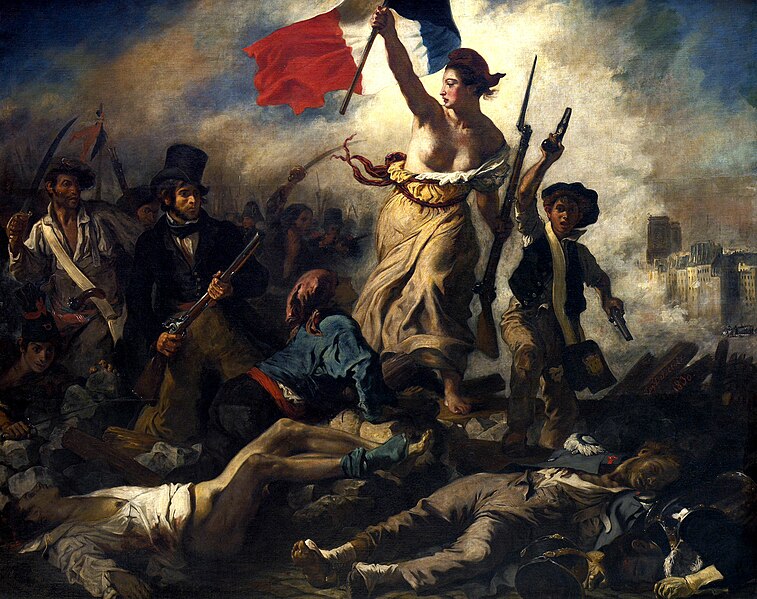 It has been a dramatic week for Southern Europe, with the elected leaders of both Greece and Italy falling as a result of pressure from the markets. Both are to be replaced by unelected technocrat governments, with former EU economists being appointed to replace them. It would appear that the democratic political systems in both countries were incapable of delivering a solution to the debt crisis. The unprecedented situation has prompted uncomfortable questions. Given the North Atlantic crisis the West has found itself in and seems to be incapable of extracting itself from, is democracy failing?
It has been a dramatic week for Southern Europe, with the elected leaders of both Greece and Italy falling as a result of pressure from the markets. Both are to be replaced by unelected technocrat governments, with former EU economists being appointed to replace them. It would appear that the democratic political systems in both countries were incapable of delivering a solution to the debt crisis. The unprecedented situation has prompted uncomfortable questions. Given the North Atlantic crisis the West has found itself in and seems to be incapable of extracting itself from, is democracy failing?This was the question being asked on the BBC's Newsnight programme Wednesday night. Italian economist Vito Tanzi said during the interview that a government of unelected technocrats can do what elected politicians cannot - tell people the truth and push through unpopular but necessary reforms. "It can do a better job of informing people what needs to be done. I think that is the problem that the Italians were told for many years that there were no problems, that nothing needed to be done when the situation was progressively getting worse. If you have this kind of government, then sooner or later you get in trouble. The technical people would know better and would tell people what the consequences are of continuing with current policies"
He was of course speaking of his friend Mario Monti, the former EU Competition Commissioner who is set to be appointed new Italian prime minister.
In Greece, it was announced yesterday that another EU official, former European Central Bank vice president Lucas Papademos, will be appointed prime minister of Greece. Neither of these men has ever been elected to any office in their home countries. But both were appointed by their countries to their EU positions, and both earned praise for their performance in those positions. Greece and Italy are joining the two EU countries which already have provisional unelected governments - Slovakia (whose government collapsed after the parliament refused to back the Greece bail-out) and Belgium.
Tuesday, 8 November 2011
Berlusconi is finished - for real this time
This blog has predicted the imminent resignation of Italian prime minister Silvio Berlusconi many times. In fact I counted, and in the past six years the blog claimed on five separate occasions that his sex and corruption scandals were about to topple him. After all it was hard to believe that a leader facing the kind of allegations he has faced could have held on to power. But this is Italy, and the normal rules don't apply.
But now it seems that the markets have accomplished what common decency couldn't - they have forced Silvio Berlusconi out of power. Tonight the Italian leader announced he will step down.
Rumours to this effect were swirling yesterday, causing European markets to rally and the euro's value to shoot up. But then Berlusoni issued a denial of the rumours on his Facebook page (where else?) and the markets tumbled. This was a clear sign: the markets had lost any shred of faith in Berlusconi to implement the reforms he promised European leaders last month. Berlusconi has survived many things, but when it came to the all-powerful markets that seem to be calling the shots these days, he was no match.
But now it seems that the markets have accomplished what common decency couldn't - they have forced Silvio Berlusconi out of power. Tonight the Italian leader announced he will step down.
Rumours to this effect were swirling yesterday, causing European markets to rally and the euro's value to shoot up. But then Berlusoni issued a denial of the rumours on his Facebook page (where else?) and the markets tumbled. This was a clear sign: the markets had lost any shred of faith in Berlusconi to implement the reforms he promised European leaders last month. Berlusconi has survived many things, but when it came to the all-powerful markets that seem to be calling the shots these days, he was no match.
Tuesday, 4 October 2011
The Knox verdict: another humiliation for Italy
 These are embarrassing times to be Italian. The country is in a financial mess, on the precipice of becoming the latest victim of the debt crisis. The prime minister is now regarded even by most Italians to be a national embarrassment, yet he still clings to power. The waste crisis in Naples has spiralled out of control, and Italy's handling of migrants from North Africa during the Arab Spring has drawn condemnation from human rights groups and European leaders alike. Even their prime minister has heaped scorn upon Italy, calling it a "shitty country". The last thing Italians needed was another embarrassment.
These are embarrassing times to be Italian. The country is in a financial mess, on the precipice of becoming the latest victim of the debt crisis. The prime minister is now regarded even by most Italians to be a national embarrassment, yet he still clings to power. The waste crisis in Naples has spiralled out of control, and Italy's handling of migrants from North Africa during the Arab Spring has drawn condemnation from human rights groups and European leaders alike. Even their prime minister has heaped scorn upon Italy, calling it a "shitty country". The last thing Italians needed was another embarrassment.As I write this, Amanda Knox is boarding a plane in Rome, heading back to her home in the US after four years in an Italian jail for a crime the judiciary now says she did not commit. Yesterday's verdict of innocence, the conclusion of the most closely-watched Italian court case in decades, brought jeers and condemnation not just from the crowd of Italians outside but also from the Italian media. Many in Italy see the verdict as the judiciary bending to American pressure. But other Italians agree with the sentiment felt abroad - particularly in the US – that the Italian judiciary and police system are so flawed there was no way Ms Knox could be convicted without significant doubt about her guilt.
Friday, 2 September 2011
Berlusconi: Italy is a "shitty country"
He's survived sex scandals, corruption investigations and insurrections – but can Italian prime minister Silvio Berlusconi survive in his post even after insulting the country he rules? Considering the shocking vulgarities he has been caught using while referring to Italy in a secret recording, this may be too much for even the Teflon Prime Minister to fend off.
The recording, made in July but released this week, catches Berlusconi saying he wished he could leave Italy – saying it is a "shitty country" that "sickened" him. The recording was made by Italian police, who were investigating allegations that Berlusconi was paying a man to corroborate his story that he was unaware the women supplied to him for his infamous "bunga bunga parties" were prostitutes.
The transcript of the recorded conversation came to light after police arrested a wealthy Rome businessman and his wife in a raid at dawn on Thursday, charging them with blackmailing Berlusconi. They allegedly demanded payment from Berlusconi in order to keep quiet about arranging the prostitutes for him. Berlusconi has admitted paying them but says he wasn't blackmailed and did it voluntarily.
The recording, made in July but released this week, catches Berlusconi saying he wished he could leave Italy – saying it is a "shitty country" that "sickened" him. The recording was made by Italian police, who were investigating allegations that Berlusconi was paying a man to corroborate his story that he was unaware the women supplied to him for his infamous "bunga bunga parties" were prostitutes.
The transcript of the recorded conversation came to light after police arrested a wealthy Rome businessman and his wife in a raid at dawn on Thursday, charging them with blackmailing Berlusconi. They allegedly demanded payment from Berlusconi in order to keep quiet about arranging the prostitutes for him. Berlusconi has admitted paying them but says he wasn't blackmailed and did it voluntarily.
Wednesday, 20 July 2011
North Atlantic crisis: US, Europe edge toward economic disaster
Normally at this time of year, politicians on both sides of the Atlantic would be preparing for their August break. But there will be no relaxing getaways this year, in what is turning into probably the most anxiety-packed summer of my lifetime.
Both Europe and the US may be just days away from serious financial troubles. And if situations on either continent spin out of control, a worldwide economic panic could be ahead.
On both sides, there are obvious and straightforward solutions that could avert disaster. But in the US, the recent electoral success of a Tea Party movement that wants to see the US default on its debts has rendered the political process incapable of taking action. In Europe, the recent surge toward nationalism and a lack of political courage has rendered the EU incapable of confronting the debt crisis head on. It is a massive failure of the political systems of the Western world.
Both Europe and the US may be just days away from serious financial troubles. And if situations on either continent spin out of control, a worldwide economic panic could be ahead.
On both sides, there are obvious and straightforward solutions that could avert disaster. But in the US, the recent electoral success of a Tea Party movement that wants to see the US default on its debts has rendered the political process incapable of taking action. In Europe, the recent surge toward nationalism and a lack of political courage has rendered the EU incapable of confronting the debt crisis head on. It is a massive failure of the political systems of the Western world.
Wednesday, 13 July 2011
Eurozone in panic: Is Italy next domino to fall?
The Eurozone is looking at several doomsday scenarios this week after Italy emerged as the latest EU state to face serious and sudden attack by international bond and security markets. After a very public spat between Prime Minister Silvio Berlusconi and his finance minister, and with the continued political uncertainty over Berlusconi's position, the markets have decided Italy may not be safe to lend to any longer.
With the paralysis in the country's government likely to prevent decisive action to confront the crisis, some are saying Italy is perhaps days away from becoming an economic failed state. And unfortunately it is not too big to fail, but it is too big for the EU to bail out.
Such extreme rhetoric may or may not be justified, depending on who you talk to. But the risk is extreme. The countries that have so far fallen victim to the debt crisis and required an EU bailout – Portugal, Ireland and Greece – are relatively tiny and their debt makes up less than 5% of overall eurozone public debt. If worse came to worse, France and Germany could afford to buy back all of their debt combined.
With the paralysis in the country's government likely to prevent decisive action to confront the crisis, some are saying Italy is perhaps days away from becoming an economic failed state. And unfortunately it is not too big to fail, but it is too big for the EU to bail out.
Such extreme rhetoric may or may not be justified, depending on who you talk to. But the risk is extreme. The countries that have so far fallen victim to the debt crisis and required an EU bailout – Portugal, Ireland and Greece – are relatively tiny and their debt makes up less than 5% of overall eurozone public debt. If worse came to worse, France and Germany could afford to buy back all of their debt combined.
Thursday, 7 July 2011
Poland fires warning shot over Denmark's 'nationalist' moves
Poland is not usually known as a very pro-EU country. In fact, it has gotten the reputation as the most Eurosceptic of the new member states. But yesterday Polish Prime Minister Donald Tusk lambasted recent moves by Denmark, France and Italy to undermine the European project. He signalled he intends to halt the current slide, led by those Western countries, toward reintroducing border controls at internal EU borders.
Tusk was speaking to the European Parliament in Strasbourg to mark the start of Poland's presidency of the EU, which will last the next six months. "The answer to the crisis is more Europe," he said, not less. He indicated that he will fight against efforts to further erode EU principles, and suggested he was unhappy with the deal reached among member states last month to allow temporary internal border patrols to deal with increased immigration.
Tusk was speaking to the European Parliament in Strasbourg to mark the start of Poland's presidency of the EU, which will last the next six months. "The answer to the crisis is more Europe," he said, not less. He indicated that he will fight against efforts to further erode EU principles, and suggested he was unhappy with the deal reached among member states last month to allow temporary internal border patrols to deal with increased immigration.
"I am against any barriers to internal free movement under the pretext of dealing with migration problems. What Denmark is doing is a concern for anybody who thinks that free movement is going to be restricted even further," he told the parliament. "Europe, with its institutions, its budget and its objectives, is not the source of this crisis. And following those who say the opposite would be a fatal mistake. Undoing the European construction at this time and turning to nationalism as an answer to the crisis would be a very big mistake."It was a fairly unusual move for the incoming presidency to take such a political stance against what other member states are doing, because the presidency is supposed to be a neutral negotiator in the council. But Poland has always marched to the beat of its own drummer when it comes to the EU.
Subscribe to:
Posts (Atom)







